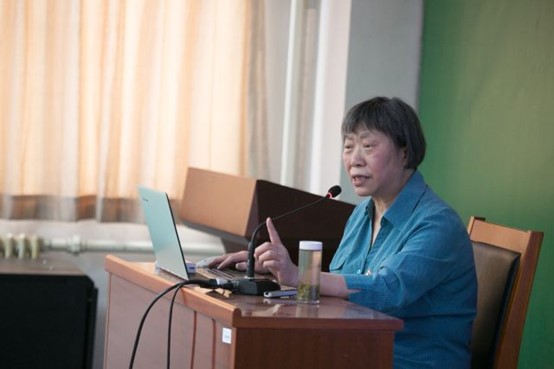
Cheng Shulan - "People’s Stand" Boosts Anti-Poverty Efforts
The 2020 Central No. 1 Document prioritizes "resolutely winning the battle against poverty" as its first item; similarly, for researchers and educators in the field of agricultural economy and rural development, anti-poverty remains an extremely important content of teaching and research.

As a student of Professor Yan Ruizhen, a distinguished Chinese agricultural economist and development economist, I have always believed that adhering to the "people's stand" in anti-poverty research ("agriculture, rural areas, and farmers" research) should make our research closely aligned with reality, truth, the populace, and the needs of the moment. This approach benefits impoverished farmers and contributes to China's anti-poverty efforts.
Take, for example, the "Taihang Mountain Poverty Alleviation and Development Experimental Zone (1992-2000)" founded by Professor Yan Ruizhen. By 2000, the project had covered 51 villages in three townships—Houjiazhuang, Bailujiao (now merged), and Zhangmou—in Neiqiu County, Hebei Province, benefiting 5,300 households and 21,000 people. It transformed barren hills into 50,000 mu of high-standard level terraces, constructed 128 water conservancy projects, and planted 1.8 million chestnut and apple trees. From 2000 onwards, these trees began to bear fruit and generate sales, with benefits continuing to this day.
Professor Yan Ruizhen's "people's stand" in her conduct, actions, and research is the most important prerequisite and foundation for the "double harvest" of poverty alleviation projects and campus teaching and research.
The project was located in Gangdi Village, requiring an early departure from Beijing, traveling tirelessly by train and car until dark to reach the destination. Previously, Yan Ruizhen and her husband spent nearly two years surveying the Taihang, Dabie, and Lüliang mountain areas, eventually meeting a village party secretary in this location who led the village to prosperity by planting apples on barren hills (Yang Shuangniu, who would become one of the "Top Ten Outstanding Village Officials" in China over 20 years later, was not yet 40 years old at the time), and a county science and technology commission director willing to benefit his fellow villagers. With "Gangdi Village" often suffering from drought "when the sky turns its back" and the land being unyielding with stones, the success of the project was predicated on the presence of these key human factors.
In choosing development content and business models, the project from the outset insisted on the principal position of the masses, allowing each village and household to voluntarily decide whether to participate, and to independently choose the type of fruit tree industry and development and operation model. Villages that volunteered for the project had options either to directly divide the barren hills among project households for planting trees or to collectively clear the land for tree planting and then distribute it to households for independent management at no cost. Under both models, irrigation facilities were constructed by collective organization, and the fruit trees were operated by farmer families. Gangdi Village, which had already succeeded in development, did not participate, and the project team rented space in the village committee for convenient experience sharing. The project also hired fruit tree experts from Hebei Agricultural University for on-site technical guidance.
As the project was implemented, the masses "voted" with continuous afforestation, and the sponsors "voted" with additional funding. The Neiqiu project won the 1997 National Science and Technology Poverty Alleviation Award, the 1996 Hebei Province Science and Technology Poverty Alleviation Award, the 1998 Hebei Province Mountainous Area Entrepreneurship Award, the 1999 Xingtai City Science and Technology Progress Award, and the 1998 Neiqiu County Committee Government Development Award. The highest honor came from the benefiting farmers: "Everyone is praising Professor Yan from Renmin University!"
One of the "precious" anti-poverty experiences that President Xi Jinping has asked to "persist in and continuously improve and develop," namely "upholding the principal position of the masses and stimulating internal motivation" "For poverty alleviation, the motivation of the masses is the foundation" "Supporting poverty alleviation with the internal motivation of the people," is not only applicable to development projects but also to intellectual poverty alleviation. Professor Yan Ruizhen's Neiqiu project achieved anti-poverty effects due to the "principal position of the masses" and "People’s Stand," refining the correct anti-poverty theory and policy, thereby promoting the anti-poverty cause.
The "principal position of the masses" in poverty alleviation projects stems from the "people's stand" of the leaders, which is also the driving force and fundamental principle for us to continue in-depth research on anti-poverty theories and policies for the decisive victory in poverty alleviation. It is also the implementation of President Xi Jinping's directive to "adhere to People’s Stand and establish a people-centered development philosophy" in the field of anti-poverty research. Practice has proven that only by being down-to-earth, seeking truth from facts, linking theory with practice, and maintaining close ties with the masses, can we firmly stand on People’s Stand and serve the overall national situation.

